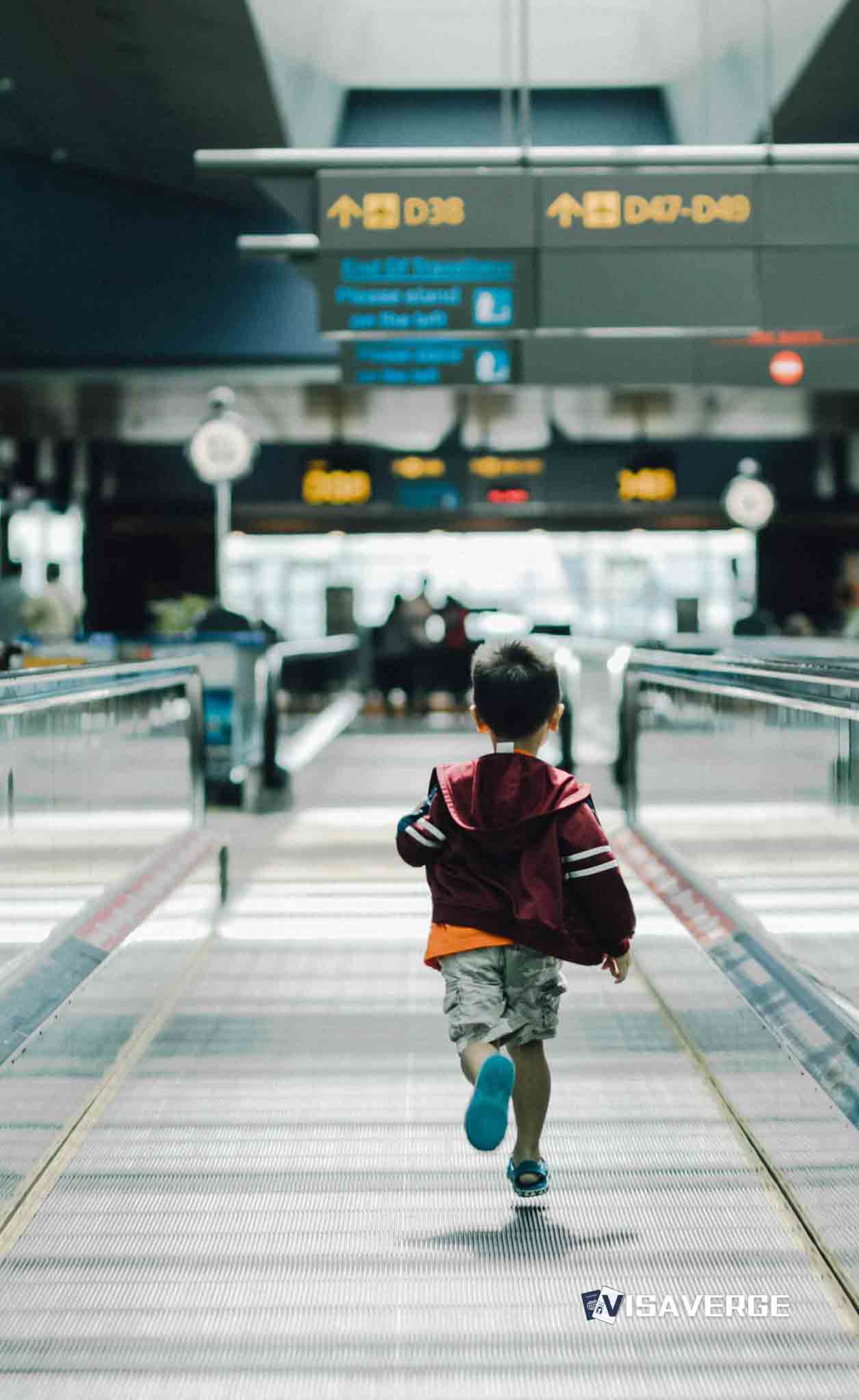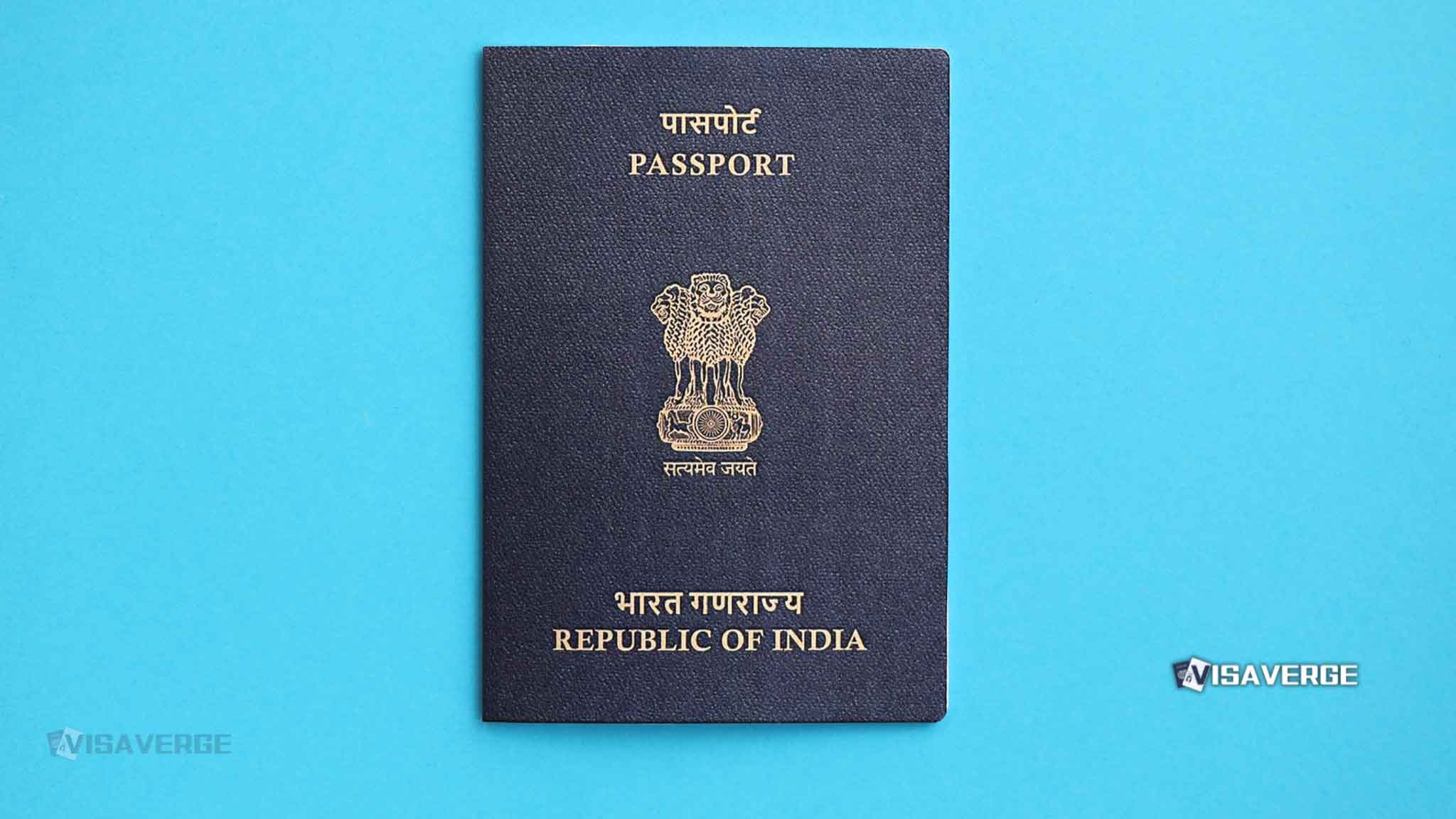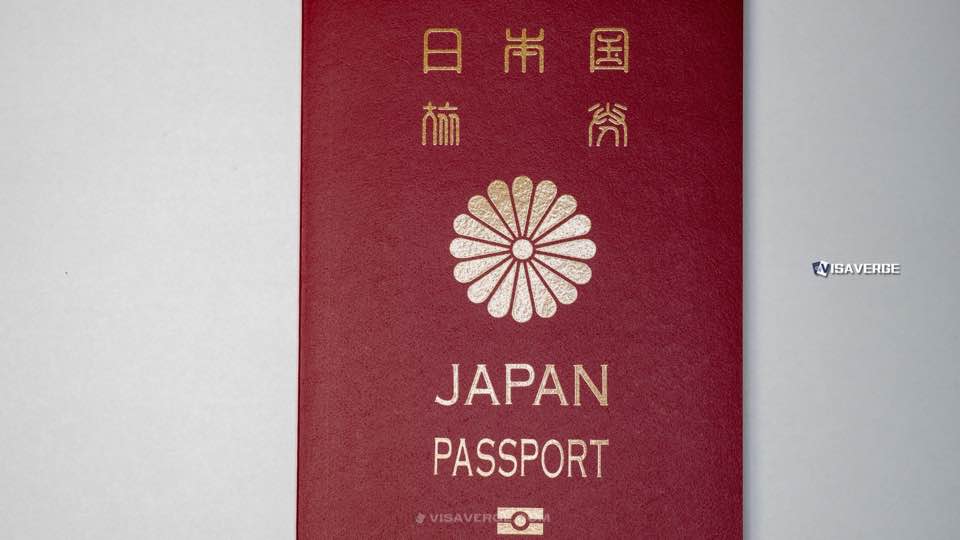Understanding the Situation: A Missing H1B Visa Holder
If someone you know on an H1B visa, similar to yours, has mysteriously disappeared, it’s an understandably worrying situation. The uncertainty can cause distress, especially when you’re unable to uncover their whereabouts through online resources such as checking their I-94 travel record. This is particularly perplexing if you’re also an H1B visa holder and are not a U.S. citizen. You might wonder what steps you can take to track down their status or report them as missing.
Steps to Take When an H1B Visa Holder Goes Missing
1. Check Online Resources
Firstly, it is crucial to verify if your friend has left the country. Although you mentioned that nothing shows up on their I-94 record online, here’s a step you can still try:
- Verify Travel History: Visit the U.S. Customs and Border Protection (CBP) website to check the person’s recent travel history using their I-94 record. You might need their passport information to access their records.
2. Report to the Authorities
If their travel history does not show their departure, you should report the individual as missing. Keep in mind the following steps:
- Contact Local Law Enforcement: Immediately reach out to the local police department to file a missing person report. It’s essential to do this as soon as possible.
- Inform the Consulate or Embassy: As a non-U.S. citizen, the next step would be to contact your country’s embassy or consulate within the U.S. In case the missing H1B visa holder is from the same country, the consulate or embassy might be able to assist.
-
Engage with USCIS: The U.S. Citizenship and Immigration Services (USCIS) should also be informed about a missing H1B visa holder. Although USCIS may not be able to directly assist in locating them, it’s important they are aware in case any immigration-related issues arise.
3. Utilize Community Resources
- Community Forums and Social Media: Sometimes, posting about the missing person on community forums or social media can help. Someone might recognize them or provide valuable information regarding their last known whereabouts.
4. Maintain Documentation
- Keep Records: Throughout the process, make sure to document all communications and steps taken. This includes any reference numbers from police reports and correspondences with the embassy.
Legal Implications and Considerations
If you’re reporting a missing person with a visa in the USA, it’s imperative to understand that privacy laws and regulations may limit the information that can be shared with you, especially if you are not a relative. Cooperate fully with the authorities and provide all the necessary details that can aid in the search.
The Significance of Timely Action
“Time is of the essence when someone goes missing,” as the saying goes. Taking prompt action is vital for ensuring that the authorities can respond effectively to the situation.
Conclusion
Dealing with a missing person is a stressful scenario. However, by taking the appropriate steps and seeking assistance from the relevant authorities, you can increase the chances of locating the H1B visa holder missing. Remember, the safety and well-being of individuals is a priority, and both local law enforcement and consular services are there to support you through this process.
Also, for updates and maintaining awareness on H1B visa-related issues, you can regularly check the official USCIS website for the latest information on policies and procedures.
Still Got Questions? Read Below to Know More
Is there a community organization or service in the U.S. that specializes in helping immigrants when they have lost contact with a loved one who is an H1B visa holder?
Yes, there are community organizations and services in the United States that can help individuals who have lost contact with a loved one who is an H1B visa holder. These organizations often provide assistance to immigrants and their families, regardless of their situation:
- American Red Cross – Their ‘Restoring Family Links’ program helps people to locate family members after separation due to various reasons, including immigration. They might be able to assist in the process of re-establishing contact with an H1B visa holder.
- Contact them here: American Red Cross Restoring Family Links
- Local Immigrant Community Organizations – Many cities have local nonprofit organizations that assist immigrants. They offer various services, including help with tracking down loved ones. A good place to start is by contacting an organization specific to your loved one’s national origin or a general immigrant advocacy group.
- The National Network for Immigrant and Refugee Rights (NNIRR) – This network is a nationwide organization that can provide resources or direct you to local member organizations that may offer assistance.
- Visit their site: NNIRR
When you contact these organizations, it’s helpful to provide as much information as possible about the H1B visa holder, including their full name, date of birth, last known location, and any other details that might assist in locating them.
“If you have lost contact with a family member on an H1B visa, there are organizations that may help. Reach out with relevant details to increase the chances of reconnecting with your loved one.”
For more specific legal assistance, it might also be wise to consult with an immigration lawyer who can guide you through any necessary steps or provide additional resources.
What kind of support can family members in our home country expect from the U.S. if their loved one on an H1B visa goes missing in the States?
If a family member on an H1B visa goes missing in the United States, the U.S. government provides specific support to help locate and assist the individual. Here’s what family members in your home country can expect:
- Contacting Law Enforcement: Your first step should be to report the missing person to local law enforcement in the area where they were last known to be. The police department takes reports very seriously and will initiate a search. They also have the capability to issue a “Be On the Lookout” (BOLO) alert and, if necessary, escalate to state and federal levels.
- Consular Assistance: You should also get in touch with the nearest U.S. Embassy or Consulate in your home country. U.S. Consulates and Embassies provide assistance to family members in the case of a missing person. As stated on the U.S. Department of State website, “If you are concerned about the welfare or whereabouts of a U.S. citizen, you can help us by providing as much information as you have about the person’s last known location, date of birth, and other identifying information.” They can help in communicating with local authorities, and provide information and resources.
To start this process, you may reach out to the U.S. Embassy or Consulate or call the Overseas Citizens Services at 1-888-407-4747 (from the U.S. and Canada) or +1 202-501-4444 (from overseas).
- Non-Governmental Organizations (NGOs): There are various NGOs that assist with missing persons cases. For example, the National Missing and Unidentified Persons System (NamUs) provides a platform to help identify and locate missing persons.
In the distressing event that a loved one goes missing, it’s important to act quickly and utilize all available resources. Remember to keep a record of all conversations with officials, including dates, times, names, and any reference numbers associated with your case.
For official guidance on what to do when someone is missing abroad, visit the U.S. Department of State’s help page: U.S. Department of State – Assistance to U.S. Citizens.
Can social media be effective in finding a friend on an H1B visa who has suddenly stopped all communication, and is there a specific way to go about it to protect their privacy?
Social media can be a helpful tool in trying to locate a friend on an H1B visa who has become unreachable, as it allows you to connect with mutual contacts who may know their whereabouts or current situation. Here are some respectful ways to go about this without compromising your friend’s privacy:
- Use Direct Messaging: Reach out to the person directly through private messages on platforms such as Facebook, LinkedIn, Twitter, or Instagram. Keep the message personal and confidential, expressing your concern and asking for a response to confirm they are safe.
- Contact Mutual Friends: Message or call mutual friends or acquaintances. Explain your concern and ask if they have information about the person’s well-being or contact details. Make sure to request that they respect your friend’s privacy and only share non-sensitive information.
-
Engage with Online Communities: Join online groups or forums where H1B visa holders or expatriates from the same country might gather. Post a general inquiry without revealing personal information about your friend. You could say something like:
“I’m looking for a friend who moved to [City, State] on an H1B visa. We lost touch and I’m concerned about their well-being. If anyone has advice on how to reconnect, please let me know.”
It is important to maintain the privacy of your friend’s personal information while using social media to locate them. Spreading sensitive details like their full name, address or specific details of their employment could put their privacy at risk. Always prioritize their safety and confidentiality.
Finally, if you are seriously concerned and all efforts through social media are unsuccessful, consider reaching out to local authorities or the embassy/consulate of the person’s home country, as they can initiate a welfare check. Keep in mind, however, that there are limitations to what they can disclose due to privacy laws.
For more information on privacy and outreach through social networks, you may refer to resources like the U.S. Department of State’s Privacy Policy: U.S. Department of State Privacy Policy.
My roommate has an H1B visa and hasn’t come home for a few nights. Who do I contact first if I’m worried something has happened to them?
If you are worried about your roommate who is an H1B visa holder and hasn’t come home for a few nights, your first course of action should be to try reaching them through common modes of communication such as a phone call, text message, or email. If you can’t get in touch with them and have genuine reasons to believe their absence is unusual or they might be in danger, you can take the following steps:
- Contact Local Law Enforcement:
- Call the local police department to report a missing person. They will be able to initiate a search and check if there have been any incidents reported that may involve your roommate.
- Provide the police with any pertinent information about your roommate, including their full name, date of birth, physical description, last known location, and a recent photograph if possible.
- Inform the Employer:
- Reach out to your roommate’s employer or HR department and inform them about the situation. Given that H1B visa-related inquiries often intersect with employment, the employer may be able to provide assistance or may already be aware of the situation.
- “Employers have a vested interest in the well-being of their H1B employees, so they often can offer support or information during such situations.”
- Contact the Consulate or Embassy:
- If the above steps do not yield any information, and there’s a continuing concern for your roommate’s safety, contact their country’s consulate or embassy in the United States. They can provide guidelines on what steps can be taken in the case of missing nationals and can act in a liaison capacity with local authorities.
- You can find contact details for foreign embassies and consulates in the United States on the U.S. Department of State’s website: Embassies & Consulates
It is important to act swiftly but calmly, keeping in mind the privacy and concerns that accompany a person’s absence. Be sure to provide accurate information to authorities to facilitate their search and to avoid any confusion. If your roommate has certain privacy or wishes that they had communicated to you regarding their whereabouts, remember to respect these unless you have compelling reasons to believe they are at risk.
What should I do if my coworker on an H1B visa didn’t show up for work for several days, and nobody seems to know where they are?
If your coworker is on an H1B visa and hasn’t shown up for work for several days without any known reason, there are a few steps you should consider:
- Contact the Coworker: Try reaching out to them through phone, email, or any other contact information available. It’s important to ensure they are safe and to understand the reason for their absence.
- Notify Human Resources (HR): Inform your company’s HR department about the situation. It is the responsibility of the employer (not coworkers) to take formal steps regarding an employee’s unexplained absence, and there may be company protocols to follow.
- Privacy and Safety Considerations: Keep in mind privacy concerns and do not attempt to personally investigate the matter beyond reasonable attempts to contact them.
The employer is typically responsible for any immigration-related issues that may arise from an H1B employee’s unexplained absence. According to U.S. Citizenship and Immigration Services (USCIS), if an H1B employee stops working for the employer, the employer may need to take certain actions, such as notifying USCIS. However, as a coworker, “you do not have any reporting requirement to USCIS” concerning your coworker’s immigration status or whereabouts.
Here are some statements from an official stand-point that may apply to the employer:
- “The employer must notify USCIS immediately of any changes in the terms and conditions of employment which may affect compliance with the requirements of the H1B program” – which means that if the employee has terminated employment or if there are significant changes, the employer should update USCIS.
- “The employer is required by law to pay the cost of return transportation abroad for an H1B employee who is dismissed before the end of the period of authorized employment.” If the employee has been laid off, the cost of their transportation to their home country would generally be the employer’s responsibility.
Finally, for more information on the employer’s responsibilities related to H1B employees, see the USCIS website on H1B Visa: USCIS- H1B Visa.
Remember, you do not need to take on the responsibility of the situation yourself. It’s best handled by your company’s HR department and, if necessary, by the proper legal authorities who are equipped to deal with such scenarios.
Learn Today:
Glossary or Definitions
1. H1B visa: A non-immigrant visa in the United States that allows U.S. employers to hire foreign workers in specialty occupations. It is commonly used for professionals in fields such as technology, engineering, and healthcare.
2. I-94 travel record: A record issued by the U.S. Customs and Border Protection (CBP) that documents the arrival and departure of foreign visitors to the United States. It includes information such as the date of entry, visa status, and authorized period of stay.
3. U.S. Customs and Border Protection (CBP): The federal agency responsible for managing the entry and exit of travelers, goods, and commodities into and out of the United States. The CBP administers immigration, customs, and border security laws.
4. Consulate or Embassy: The official diplomatic mission of a foreign country in another country. Consulates and embassies provide various services to their citizens who are abroad, including passport issuance, visa applications, and assistance in emergencies.
5. U.S. Citizenship and Immigration Services (USCIS): The government agency that oversees lawful immigration to the United States. The USCIS is responsible for processing and adjudicating applications for visas, work permits, green cards, and naturalization.
6. Community Forums and Social Media: Online platforms and forums where individuals can connect and share information. Community forums and social media can be valuable tools for seeking assistance, gathering information, and spreading awareness about missing persons.
7. Privacy laws and regulations: Laws and regulations that govern the protection and use of personal information. Privacy laws may limit the release of certain information to individuals who are not immediate relatives or have a legal interest in the missing person.
8. Relative: A person related to another by blood, marriage, or adoption. In the context of reporting a missing person, information and updates may be shared more readily with immediate family members than with individuals who are not related.
9. Prompt action: Taking immediate and timely measures to address a situation. Prompt action is crucial when someone goes missing to enable authorities to respond quickly and effectively.
10. Authorities: In the context of reporting a missing person, “authorities” refers to law enforcement agencies, such as the local police department, who are responsible for investigating and addressing missing person cases.
Dealing with a missing H1B visa holder is undoubtedly worrisome, but by following the necessary steps and reaching out to the authorities, there is hope for a safe resolution. Remember to document everything, stay in touch with the consulate, and engage with USCIS. For more expert advice and updates on H1B visa-related matters, don’t forget to check out visaverge.com. Stay informed and keep your loved ones safe!
This Article in a Nutshell:
Understanding the Situation: A Missing H1B Visa Holder
If an H1B visa holder you know goes missing, it can be distressing. Check their travel history online and report them as missing to the police, embassy, and USCIS. Utilize community resources like social media. Document all actions taken. Act quickly as time is crucial. Safety and well-being are important.














